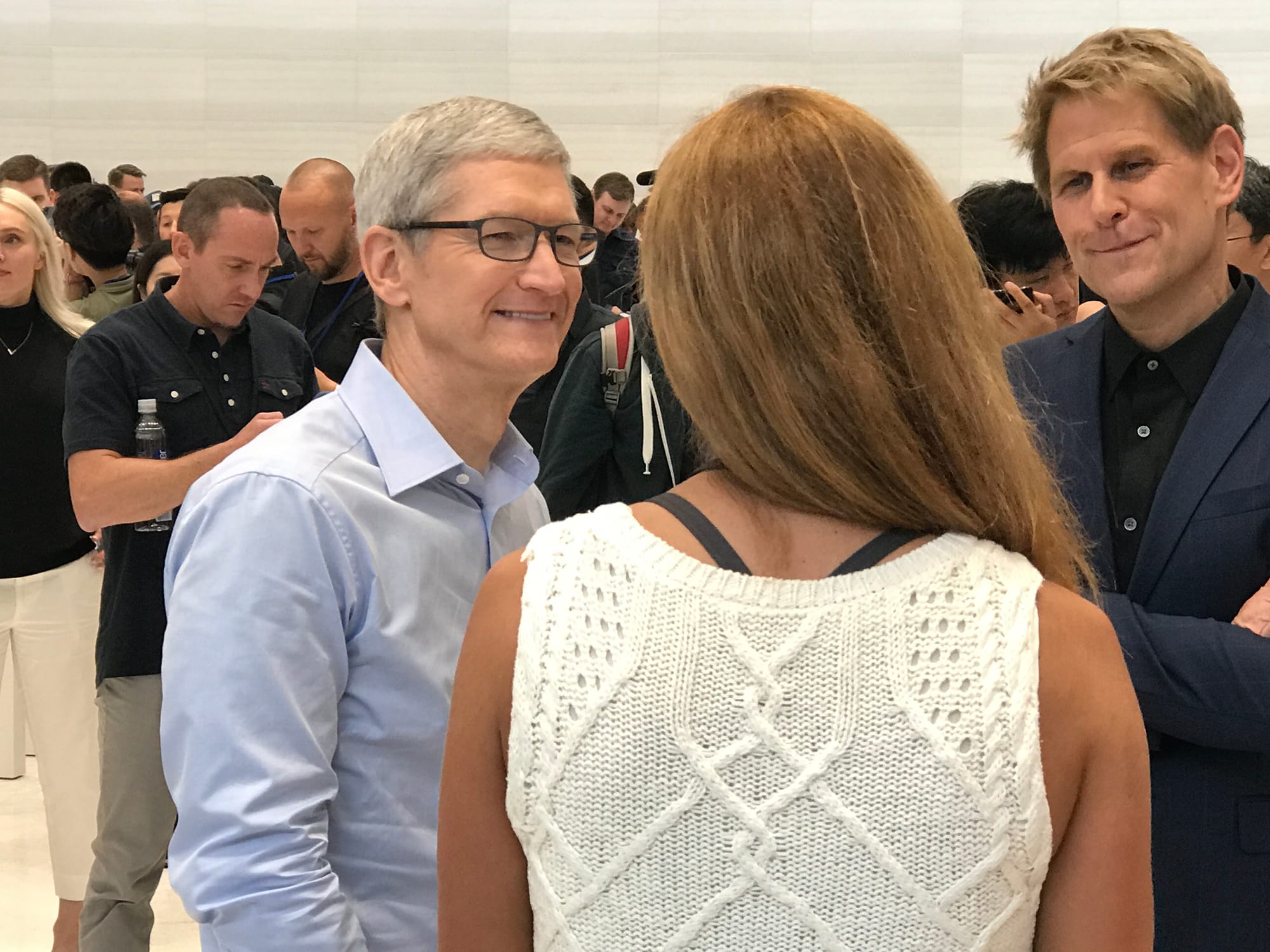Rise of 'Vibe Coding': How AI Is Reshaping Software Development
Anthropic's analysis of 500,000 coding conversations reveals startups use AI coding tools 20% more than enterprise companies, pointing to a growing tech divide.

Elon Musk is at it again, in peak form. While his former colleagues at OpenAI are still polishing GPT-4, he's making bold proclamations in Dubai about his new AI model Grok 3, claiming it will "surpass them all." Well, then – this should be interesting.
Meanwhile, another case shows just how wild the AI gold rush has become: Scarlett Johansson discovered herself in an AI video she never filmed. In it, she supposedly fights antisemitism – a noble cause, but without her consent. Her instead pointed response: "Enough is enough!"
The message is clear: While tech elites throw around increasingly grandiose announcements, the side effects of unchecked AI development are becoming more visible by the day.
Hollywood star Scarlett Johansson raises the alarm: A viral AI video shows her and other Jewish celebrities apparently fighting antisemitism - without their consent.

The clip, which also "features" Drake, Jerry Seinfeld, and Steven Spielberg, responds to Kanye West's recent antisemitic outbursts. Set to "Hava Nagila," it ends with the message "Enough is Enough."
The actress hits back with a sharp warning: Even well-intentioned AI fakes remain dangerous. "The threat of hate speech, amplified by AI, is far greater than any individual taking responsibility for it," says Johansson, who is Jewish herself. She urges the U.S. government to finally set legal boundaries for AI use - noting that other countries are already ahead on this front.
Why it matters:
Read on, my dear:

Prompt:
A huge steak with ice and snow on it, surrounded by little people in work holding sledgehammers to cut the meat into pieces. The background is an icy world, with tiny figures working around them. Surrealist photography, high resolution, high quality, high detail, high dynamic range colors, depth of field, highly detailed, super-realistic.
The tech billionaire is at it again: His AI company xAI is about to release Grok 3 - and the promises are as modest as Musk's Twitter posts (which is to say, not at all). The new model supposedly outperforms all known competitors in testing, Musk declared at the World Governments Summit in Dubai. He particularly praised its logical reasoning capabilities, which we assume means it can finally understand Musk's own tweets.
Meanwhile, the OpenAI drama intensifies. A Musk-led consortium is offering $97.4 billion for the non-profit division - while simultaneously suing to block its transformation into a for-profit entity. Because nothing says "I care about AI ethics" quite like a multi-billion-dollar legal battle.
Why it matters:
Read on, my dear:
Elon Musk offers $97.4 billion for OpenAI. There's just one tiny wrinkle: The offer contradicts his own lawsuit. Awkward.
OpenAI's lawyers and CEO Sam Altman are firing back with a zinger: The unsolicited offer is merely a clever ploy. They claim Musk is trying to hobble competition while blocking the startup's transformation into a profit-seeking entity. (Who knew AI ethics could be this entertaining?)
Musk has attached a string to his offer - and it's a big one: The board must maintain its non-profit mission. Only then, he argues, can a fair market price be determined. Nothing says, “Let’s make a deal,” quite like demanding that the other party change its business model.
Why it matters:
Read on, my dear:
Elon Musk faces fresh legal headaches: Two federal courts will examine whether the tech billionaire is unconstitutionally meddling in U.S. governance. The charge? As head of the "Department of Government Efficiency" (DOGE - yes, really), he's making sweeping decisions typically reserved for Senate-confirmed officials. Musk's wrecking ball is in full swing, with budget cuts, staff reductions, and data access all under scrutiny.
Democratic attorneys general are drawing a historical parallel that's hard to ignore: The Founding Fathers would be doing backflips in their graves if they saw an unelected entrepreneur dissolving entire agencies with a mouse click. The kicker? The federal employee buyout offer bears an uncanny resemblance to Musk's Twitter (now X) scorched-earth strategy. Apparently, government agencies and social media platforms are interchangeable in the Musk playbook.
Why it matters:
Read on, my dear:

Apple has chosen Alibaba to power AI features on Chinese iPhones. The move comes as China's strict regulations leave foreign tech companies with about as many options as a vegetarian at a steakhouse.
Alibaba's Chairman Joe Tsai announced the partnership just as the company's stock hit new highs. Talk about perfect timing. The Chinese tech giant has been working overtime to maintain its position in China's tech sector, and this deal is quite the feather in its cap.
For Apple, the choice was about as "voluntary" as following your GPS off a cliff. Chinese authorities demand local partners for AI services - no exceptions. With Huawei breathing down its neck in the premium segment, Apple needed to act fast to defend its market share.
The partnership puts Alibaba in an enviable position: They'll provide AI technology for Apple in the world's largest smartphone market. Not bad for a company that started by selling other people's stuff online. From e-commerce to AI kingmaker - now that's what you call a glow-up.
Read on, my dear:
Tried ChatGPT and rage-quit? Don't worry - a few clever tricks will transform AI into your personal assistant. Here's your survival guide for 2025.
First things first: Forget everything you know about search engines. ChatGPT is your digital colleague - talk to it like a human. (Yes, really.)
Three Golden Rules for ChatGPT Success:
"Explain quantum physics" will get you a Wikipedia dump. Try instead: "Explain quantum entanglement as if I'm a 12-year-old sci-fi fan."
Rather than "Write me a project on renewable energy," go with: "Let's walk through renewable energy step by step. Start with solar power and explain the basics in three sentences max."
ChatGPT loves playing dress-up. "As an experienced mechanic, explain what might be wrong with my car when the brakes squeal" works better than a technical query. Who knew AI could roleplay?
Pro Tip: If the response goes off the rails, politely redirect. A simple "That was a bit complex. Can you dumb it down?" works wonders. AI doesn't have an ego to bruise.
Why this matters:
P.S.: Worried about messing up? Relax - ChatGPT doesn't have bad days and won't judge your "stupid" questions. Unlike your high school teachers, it actually enjoys explaining things twice.
Softbank's chip designer Arm is stepping into the big leagues. Their new server processor targets data centers, with Meta already signed up as a customer. By switching from pure design to chip manufacturing, Arm is shaking up the $700 billion market. David vs. Two Goliaths, anyone?
Google's Advanced subscribers can now revisit past conversations, making their AI interactions more personal. The feature debuts in English for web and mobile users, with more languages and a business version in the pipeline.
Publishing heavyweights Condé Nast and The Atlantic accuse Canadian AI startup Cohere of stealing over 4,000 articles. The $5 billion company allegedly didn't just train on the texts - they're accused of reproducing complete articles verbatim, even paywalled ones. Publishers want $150,000 per violated work, calling the practice an "existential threat to journalism."
Google's new AI will screen users' age based on browsing habits and YouTube activity. If it suspects you're underage, safety features like SafeSearch kick in automatically. Rolling out soon in the US - helicopter parenting goes digital.
Tim Cook has announced an Apple product launch for February 19. The star of the show? Likely the iPhone SE, untouched since 2022. Bloomberg's Mark Gurman expects Face ID to replace Touch ID, no Home button, an A18 chip, and Apple's own cellular modem.
Princeton startup EnCharge AI has secured $100 million to develop analog memory chips for AI systems. Their chips promise 20x better energy efficiency than current solutions, with market launch planned for 2025. Perfect timing for the US chip innovation push.
DeepSeek's efficient open-source AI models threaten India's position as a global code supplier. With private sector too risk-averse for AI research and government funding of $1.2 billion dwarfed by China's investments, India risks becoming a mere AI technology importer while China extends its tech leadership.
Baidu will offer its AI chatbot Ernie Bot free to all users starting April 1 (no, not a joke). The Chinese tech giant is fighting off upstarts like DeepSeek. To sweeten the deal, they're throwing in enhanced search features - also free.
Jeff Bezos' space venture Blue Origin is letting go of about 1,000 employees. CEO David Limp blames bureaucracy and lack of focus from rapid growth. Despite the cuts, the company remains optimistic after successful New Glenn rocket tests and plans for a 2025 moon landing. Turns out even rocket science needs streamlining.
Fuel your morning with AI insights. Lands in your inbox 6 a.m. PST daily. Grab it free now! 🚀